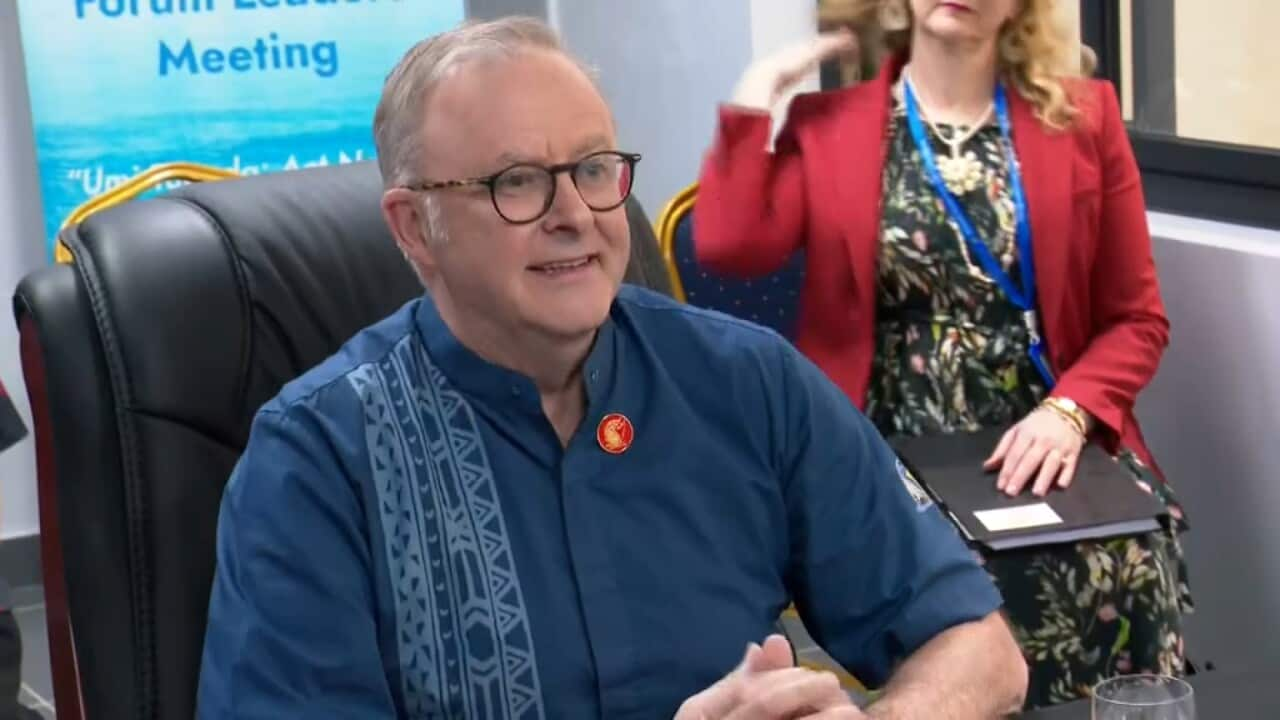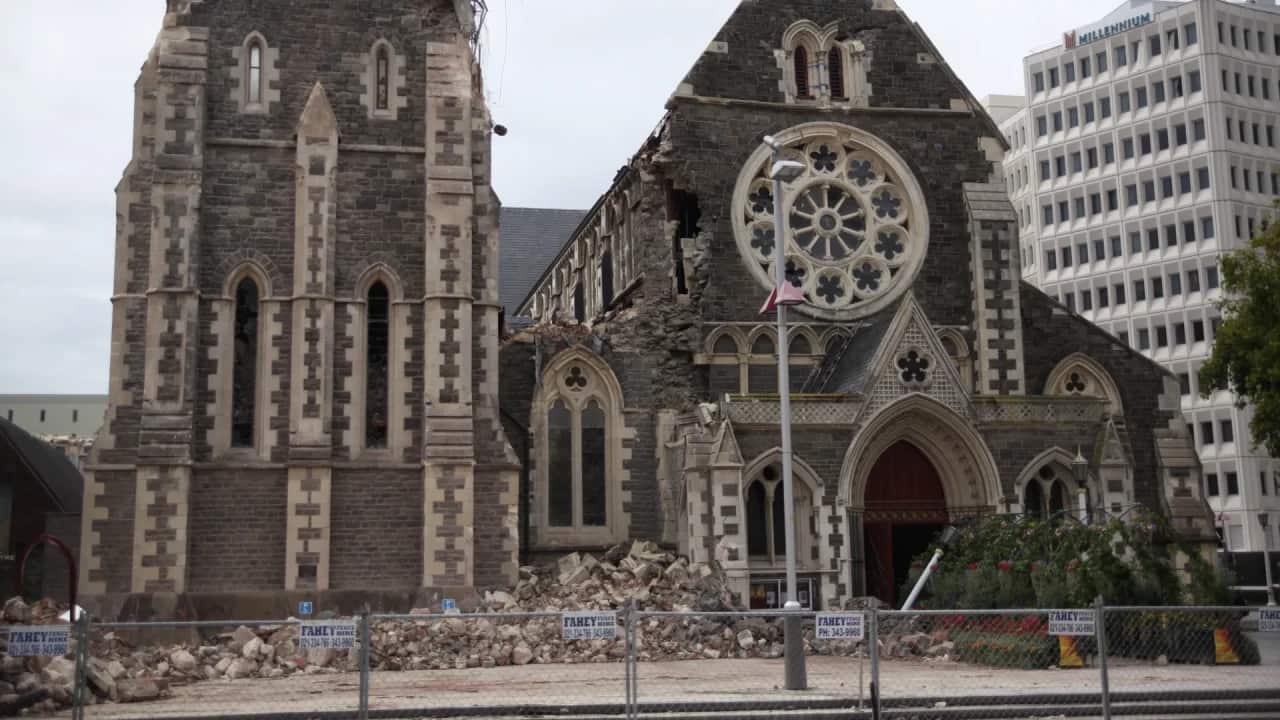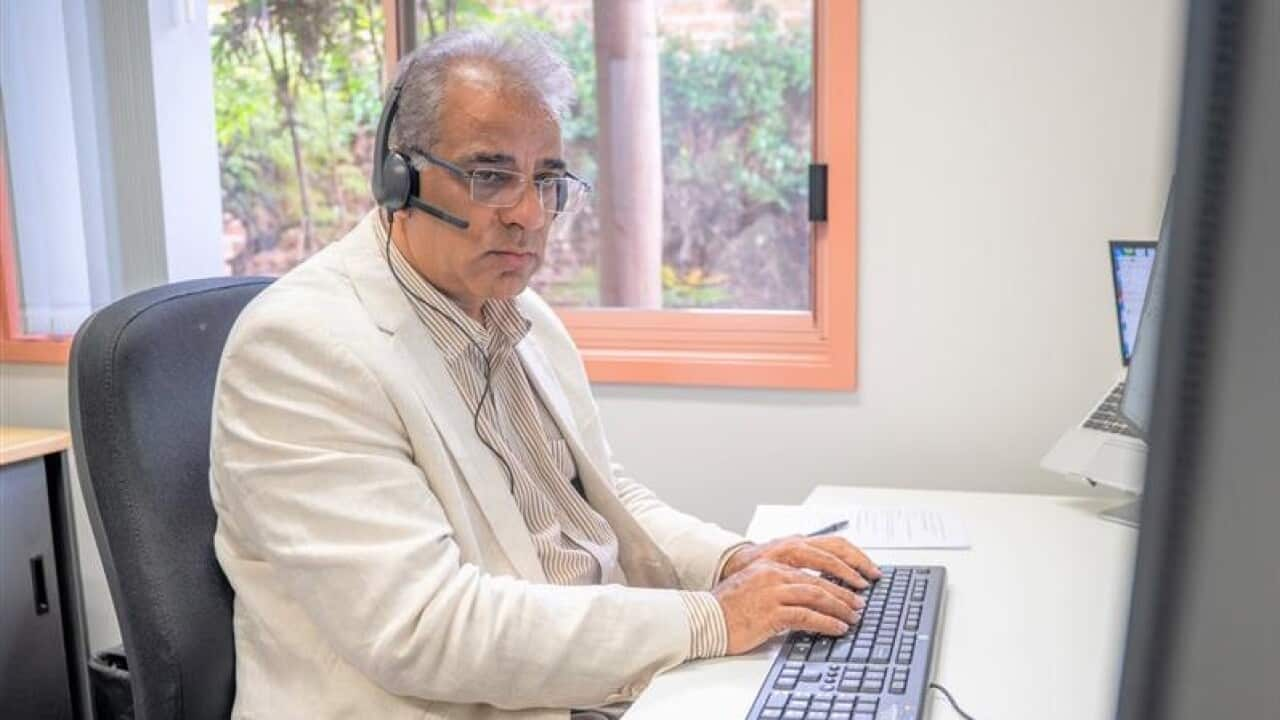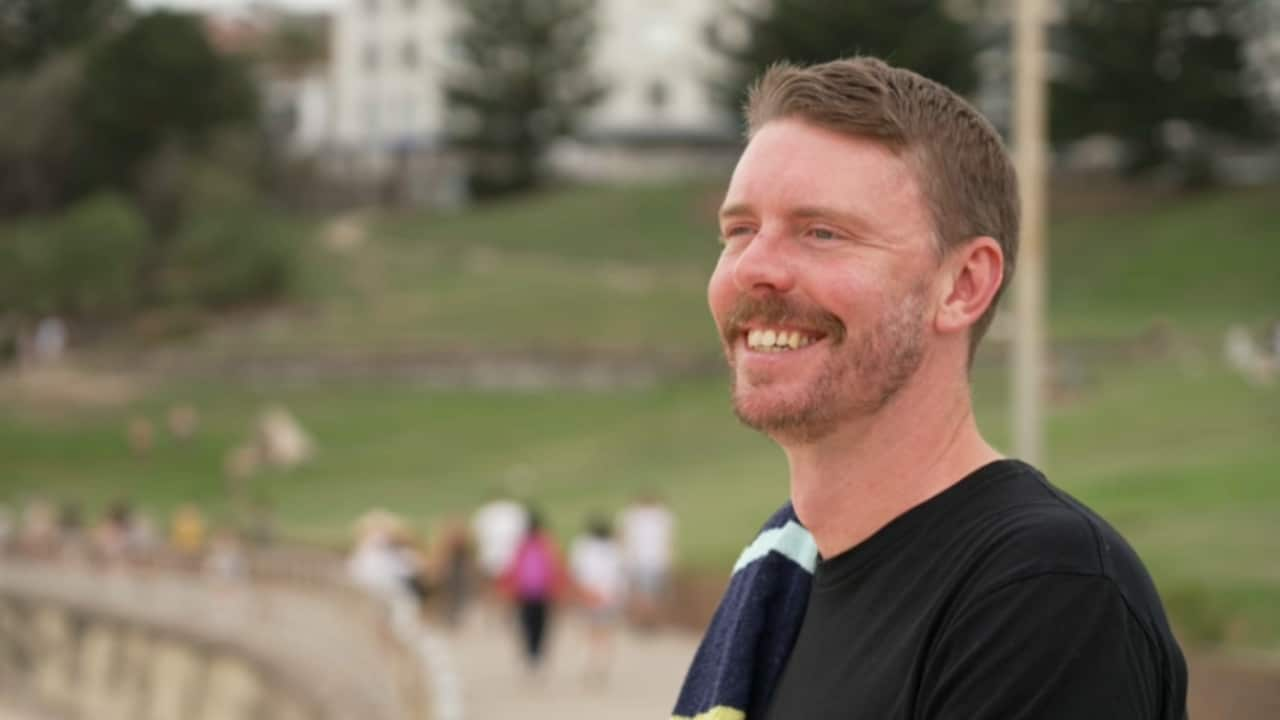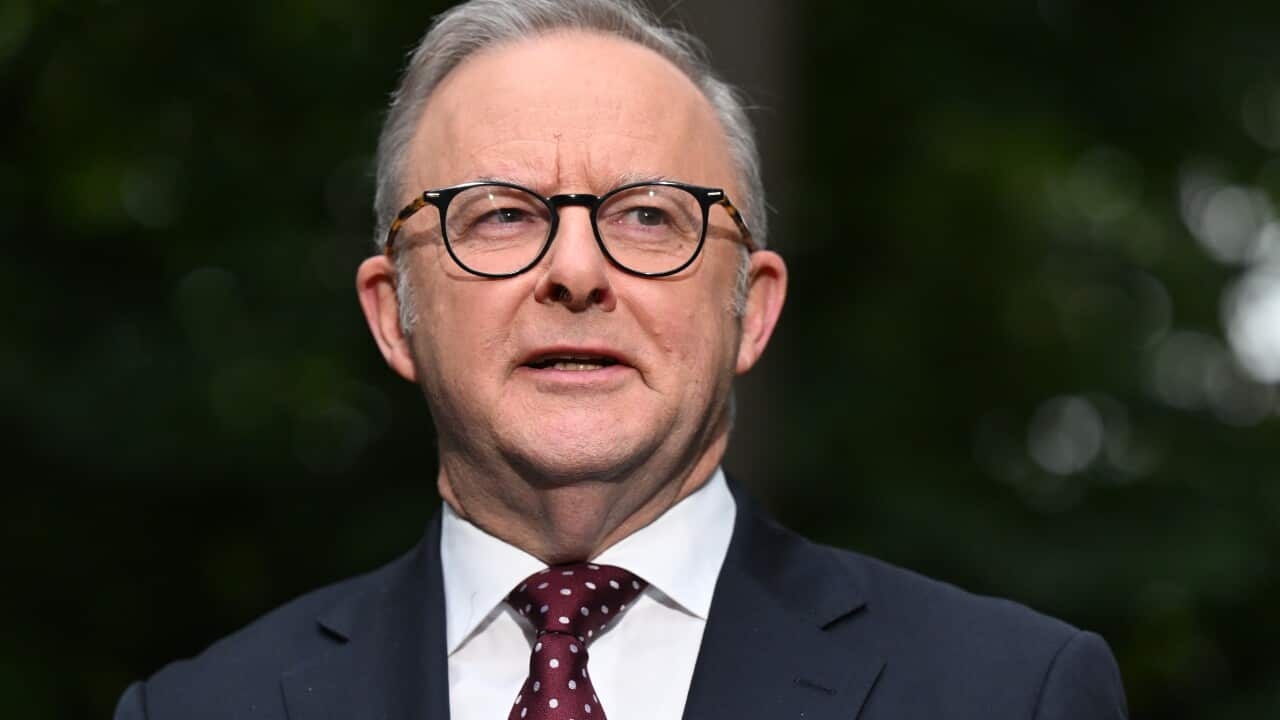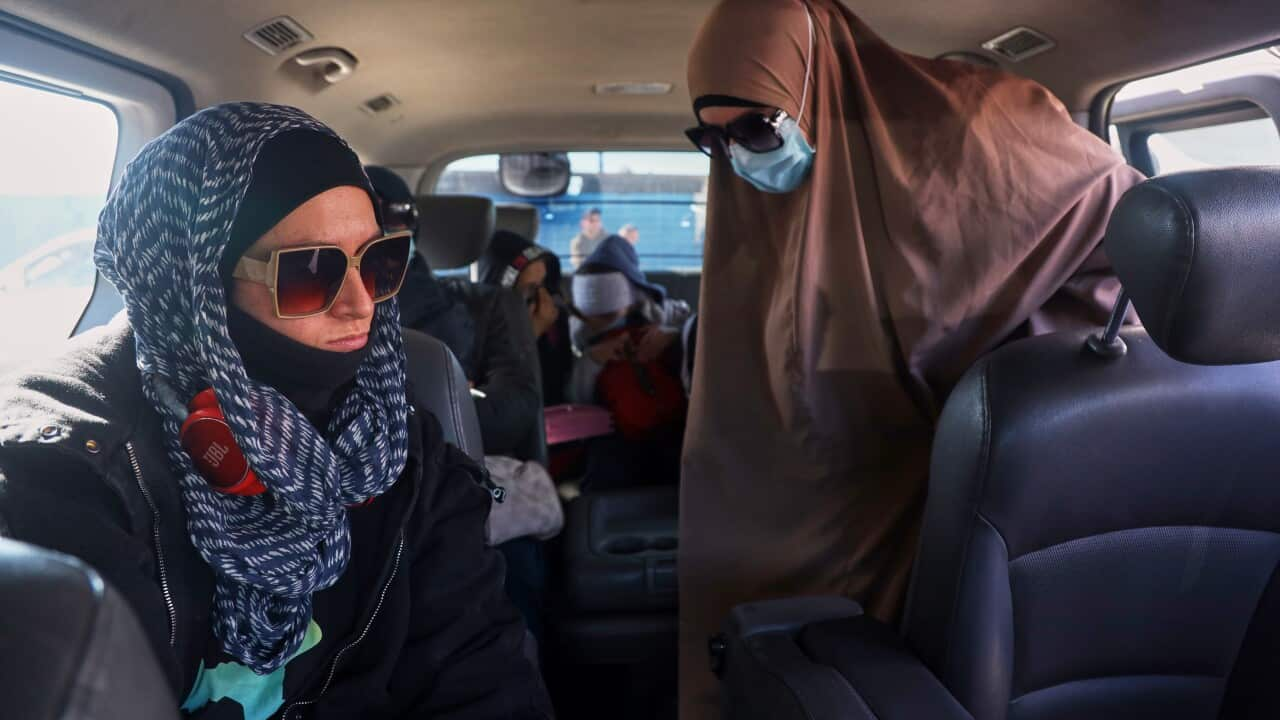Listen to Australian and world news, and follow trending topics with SBS News Podcasts.
TRANSCRIPT
In the heat of Honiara, Pacific leaders and diplomats are gathering in the Solomon Islands capital for the region's paramount political meeting.
High on the agenda for this year's forum is stronger action on climate change, maintaining regional security, and a review of regional partnerships.
Climate change is one of, if not the most pressing, security threats faced by Pacific Island nations.
As China and Australia compete for influence in the region, Climate Council Researcher Wesley Morgan says strong climate action could help Australia cement its position.
"Australia is deeply concerned about China's growing influence in the region. So in 2022 China signed a security deal with Solomon Islands, and Australia is keen to avoid a situation where other countries sign security deals with China. For their part, Pacific Island countries are crystal clear that climate change is their single greatest security threat. So if Australia is to really cement its place as a security partner for Pacific governments, Australia will need to be taking action to address climate change, and that means setting as strong a target as possible to cut emissions over the next decade."
One outcome expected at the 2025 Forum is the establishment of the region's new climate fund, The Pacific Resilience Facility.
Set to be signed and ratified during the summit, the fund is the first Pacific-led, owned, and managed financing mechanism in the region.
Pressure is also on the Australian government to secure the hosting rights for the next annual COP31 Climate Summit, which Turkiye is now also bidding for.
Prime Minister Anthony Albanese says climate action is key to credibility in the Pacific.
"We will contribute an initial $100 million I have confirmed for that. This is more than a fund, it's a promise to Pacific communities they will not face climate threats alone."
On regional security, Prime Minister Anthony Albanese says he will negotiate an upgrade to the security agreement with Fiji.
Mr Albanese skipped day one of the forum for a detour to Vanuatu, where he failed to sign a long-awaited security and development deal with Vanuatu.
With the future of the Nakamal agreement hanging in the balance, Vanuatu's leadership says concerns persist over the deals possible impact on their ability to accept foreign funding for critical infrastructure.
Based in Vanuatu, Dr Tess Newton-Cain is an Adjunct Associate Professor at the Griffith Asia Institute.
"Their impetus, their main driver, is to ensure that they have available to them the resources that they need to guarantee human security in Vanuatu, and that means working with a wide range of partners, and they do not see in their short to medium term, they do not see any scope for entering into something that would limit the choice of partners they work with ."
A previous security agreement in 2022, which would have given Australia power to veto Chinese investment in Vanuatu's critical infrastructure, failed to materialise in 2022 over similar concerns.
Dr Newton-Cain says that Australia has the opportunity to prove itself as a friend to Vanuatu by giving them time to find an agreement that benefits both.
"Bearing in mind what happened in 2022, Australia knows that you need to kind of commit to the process, and that it's not a single swipe of a pen, that there is going to be that need for the Vanuatu leadership to have satisfied its own people, the opposition and the community at large, that there has been sufficient consultation and that Vanuatu interests are being protected."
Over the past year, Chinese military presence has reached new levels in the Pacific.
From staging a live fire military exercise in the waters between Australia and New Zealand to conducting its first intercontinental ballistic missile test in the Pacific since 1980, China has not been coy about its strategic interests in the region.
Joel Nilon is the Pacific Fellow at the Pacific Security College at the Australian National University.
He says one key outcome expected at the forum is the signing of Fiji's proposed 'Ocean of Peace' Declaration.
"This will be a declaration that is about sort of ensuring the region remain a sort of zone of peace free from conflict. It will set out a number of principles, you know, related to prevention of conflicts, upholding the rule of law, not only for foreign countries, but also for partners."
Ahead of the summit, China gifted the Solomon Islands a fleet of 27 new vehicles to drive delegates around during the forum.
That same day, Australia also gifted the Solomon Islands a fleet of 61 new police vehicles.
Local papers on the Pacific nation ran two full page articles about the gifted vehicles, side by side, headlined almost identically.
Mihai Sora is Program Director of the Pacific Islands Program at the Lowy Institute.
He says these gifts are a way to build relationships from the outside.
"That's the vector by which they can increase the influence with the relevant local security actors, in the absence of the military in Solomon Islands, for example, or Navy. They use the police force to build up those relationships ... So that's really that's that's really the dynamics that's that's at play there. For Australia, one concern is also that you know in accommodating an increased Chinese security presence, established relationships that Australia has that are sanctioned by the Pacific Islands Forum would be sort of elbowed out. You know, there's only so much bandwidth for a trusted partner and so hence China and Australia are vying to be that trusted partner."
Another key agenda item is a review of regional partnerships in the Pacific, which will look at how regional meetings operate and even how external partners engage with the forum.
The Pacific Island Forum has 18 full members and around two dozen external partners, including China, Taiwan and the United States.
Sparking backlash, this year's host and ally of China the Solomon Islands, opted not to invite any external partners.
While the official reasoning cited the unfinished review of regional partnerships, Mihai Sora says he believes it was done appease China, as well as other members who recognise Taiwan.
"When Solomon Islands telegraphed that they intended to exclude Taiwan from this meeting, some Pacific leaders as well as Australia and New Zealand criticised the move, expressed reservation and for a few Pacific countries, in fact, they threatened to boycott the meeting altogether. So Solomon Island's decision to exclude all dialogue partners is a bit of a walk back from that. You know, the main objective is to exclude Taiwan. It's consistent with China's diplomacy with respect to Taiwan globally, that is, you know, eliminating diplomatic support for Taiwan and excluding them where possible. So the end result, Solomon Islands government thought that it would be more palatable to members, if they could say that they're excluding all dialogue partners and the reason being that it would allow Pacific leaders more bandwidth, more airtime to focus on their own issues."
